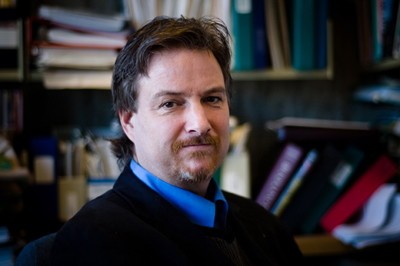On humans as animals
Two speakers bring in refreshing mix of biology and psychology to Darwinism
Future wives, beware: He really will always prefer his mother over you. This was the claim of two scientists at a recent University of Winnipeg lecture.
The biology department at the U of W hosted a lecture by two psychologists from McMaster University as part of its annual Elizabeth Laird lecture series.
Because the biology department is currently celebrating the 200th birthday of Charles Darwin, this year’s lecture focused on how evolution has affected human relationships.
Using a number of recent studies, Martin Daly and Margo Wilson discussed the relationship between kinship and evolution in front of a packed auditorium.
Their findings showed that people preferred their more immediate relatives over other relationships – a direct result of evolution, they argued.
The speakers compared fighting ground squirrels to human relationships, saying that although people claimed to feel closer to friends than to relatives, they were much more willing to give money to help out a relative than a friend.
U of W biology professor Scott Forbes recommended the department bring in Daly and Wilson due to their unique combination of psychology and Darwinism.
“A Darwinian view on kinship hasn’t made its way into the social sciences yet,” he said.
Forbes noted genetics research should particularly appeal to psychologists because genes can affect people’s actions.
In an interview following the lecture, Daly said there was a lot to be said for collaboration between psychologists and biologists, but that it was only in its early stages.
Most psychologists initially tend to suspect biologists of being deterministic.
“It is a joke to think the human animal is a special creature,” Daly said.
Jim Clark is a psychology professor at the U of W who has worked in the biopsychology department.
He felt the lecture still tended to give away the presenters’ psychology training.
“The speakers are not working at a molecular level, they are working at a behavioural level,” he said.
Overall, Clark said he appreciated the speakers and said that students could certainly use the information to better understand their own relationships with their families and their friends.
But he said the introduction of new technology is constantly opening up new ways of studying the mind.
“There is a lot of interest right now because we can put people in an MRI machine,” he said.
Published in Volume 63, Number 24 of The Uniter (March 19, 2009)







